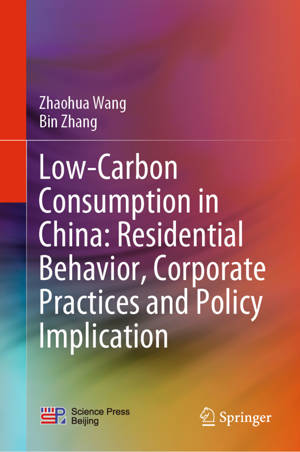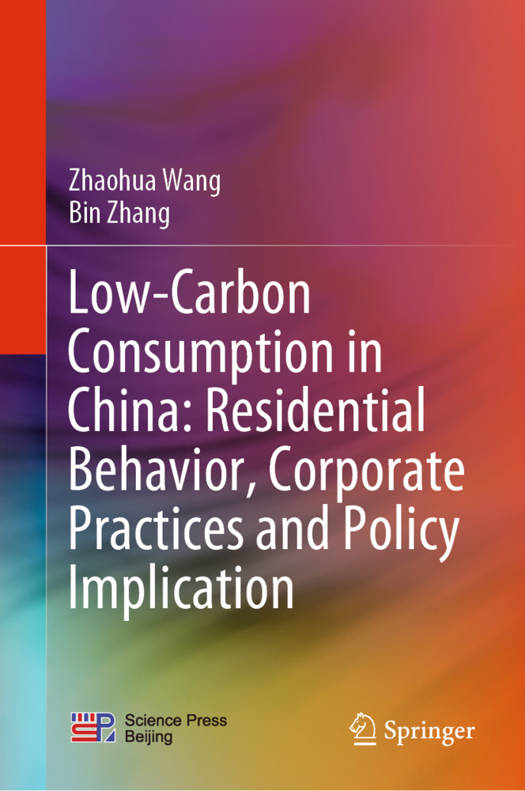
- Retrait gratuit dans votre magasin Club
- 7.000.000 titres dans notre catalogue
- Payer en toute sécurité
- Toujours un magasin près de chez vous
- Retrait gratuit dans votre magasin Club
- 7.000.000 titres dans notre catalogue
- Payer en toute sécurité
- Toujours un magasin près de chez vous
Low-Carbon Consumption in China: Residential Behavior, Corporate Practices and Policy Implication
Zhaohua Wang, Bin ZhangDescription
This book explores China's low-carbon consumption in the context of residential behaviour, corporate practices and policy Implication. It first calculates the carbon and ecological footprints of residential consumption, including both direct and indirect emissions, before discussing Chinese residential behavioural aspects and determinants of electricity saving, low-carbon transportation, low-carbon product purchasing, and e-waste recycling. The authors then investigate the relationship between industrial growth and carbon emissions, using the example of the iron and steel industry to examine the motivation for energy intensive industries to reduce carbon emissions. They also consider energy efficiency and inter-company collaboration on carbon emission reduction. Lastly, the book describes the major low-carbon policies in China and their impact, economic cost and public acceptance.
Spécifications
Parties prenantes
- Auteur(s) :
- Editeur:
Contenu
- Nombre de pages :
- 327
- Langue:
- Anglais
Caractéristiques
- EAN:
- 9789811527913
- Date de parution :
- 14-07-20
- Format:
- Livre relié
- Format numérique:
- Genaaid
- Dimensions :
- 156 mm x 234 mm
- Poids :
- 657 g







